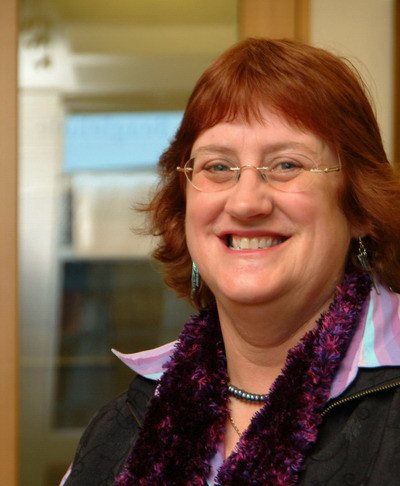By Hilary Stace, Health Research Centre, School of Government, Victoria University of Wellington
Health Research Council funding through the Disability Research Placement Programme was vital for undertaking my 2011 PhD public policy thesis on autism in New Zealand. It was completed while I was a Research Fellow at the Health Services Research Centre, School of Government, Victoria University of Wellington.
I found that as diagnoses increase, more and more people are becoming familiar with the condition of autism. At a conservative estimate about 40,000 New Zealanders are on the autistic spectrum, which means that many families and communities have or know someone with autism, and may have experience of the difficulties in getting good support or services. However, most academic research relates to clinical aspects of autism, causes or interventions. This makes my PhD on autism policy unusual in that I looked at how to improve services and support for people with autism, and their families, using the premise that this is a problem for society, not just individuals. My research showed how fragmented and unsatisfactory New Zealand public policy is towards autism, even within the wider context of disability policy generally. Getting people with autism and their families involved in issues around policy and implementation is one possible solution. Examining autism as a ‘wicked’ policy was innovative as this concept of intractable policy problems has not been applied to the disability sector before. I examined the history of disability in New Zealand and overseas and the international development of the condition of autism as definitions and diagnostic criteria continue to evolve. I also studied the 2008 New Zealand Autism Spectrum Disorder Guideline as a case study, and finished by providing visions for how things could be in the future.
My interest in this topic arose from having an autistic son who is now an adult. Below is the abstract as published in the thesis.
Abstract
Autism Spectrum Disorder (ASD) diagnoses have been rising rapidly in recent years and New Zealand is just one country grappling with the policy challenges this presents. Currently, love, such as a supportive family, and luck, that appropriate services are available, are required by people with autism and their families for good outcomes, a situation that is neither equitable nor sustainable. Autism was first named as a separate condition in 1943. The concept of autism has developed significantly since then in many ways, including as the cultural identity that many autistic adults now claim. Influenced by the international disability rights movement and local activism, New Zealand policy is now based on the social model of disability, whereby society as a whole has responsibility for removing disabling barriers.
In 1997, a New Zealand mother, unable to find appropriate support at a time of crisis, killed her autistic daughter. A decade of policy work followed, leading to the 2008 publication of the New Zealand Autism Spectrum Disorder Guideline (Ministries of Health and Education, 2008) which is the first whole-of-spectrum, whole-of-life, whole-of-government, best practice approach in the world to address the extensive issues surrounding ASD. Prioritisation and initial attempts at implementation revealed new problems. The complexity, lack of simple solutions and fragmentation of autism policy indicates that this is a ‘wicked’ policy problem. To move beyond this situation requires innovative and collaborative approaches. The ‘transformative paradigm’ is a research methodology which builds on recent developments in participatory and emancipatory research, and disciplines such as disability studies. It advocates approaches based on mixed methods, social justice, ethics and partnership, so is particularly suited to examining a problem such as autism, and indicating ways forward.
There is untapped expertise among those with lived experience of autism and their families to tackle the ‘wicked’ aspects of autism, but to harness this expertise requires relationship building which addresses power imbalances and past injustices. This thesis analyses New Zealand autism policy and suggests ways this lived experience could be better respected and incorporated into policy processes, in an attempt to move past the currently required variables of love and luck.
_______________________________________________________________________
Note: The HRC no longer offers the Disability Research Placement Programme award, but please check our Career Development web page for other awards we currently fund.
